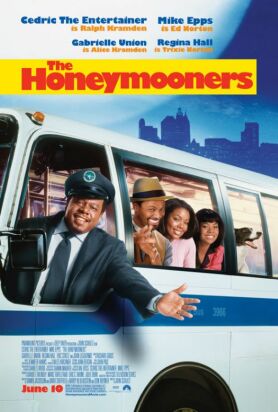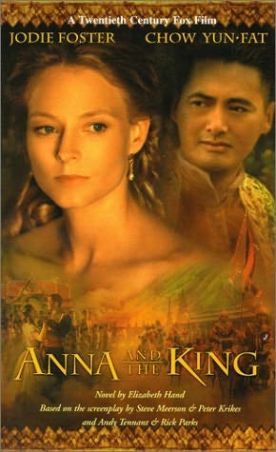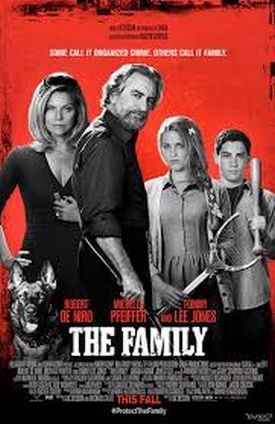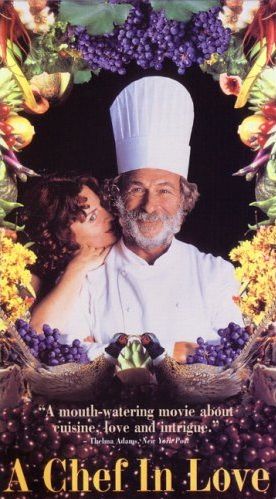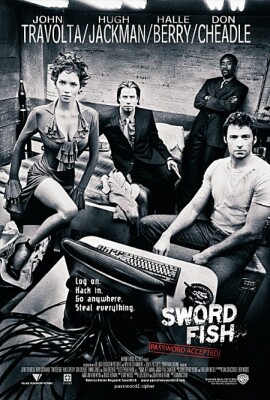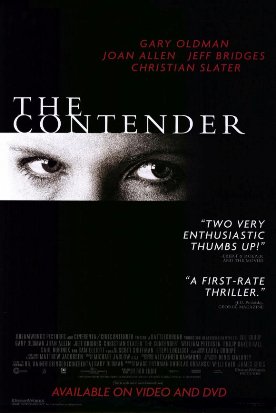Honeymooners, The
As we look back at him, Jackie Gleason’s Ralph Kramden in “The Honeymooners” looks more and more like a tragic figure. At least he was like King Lear or Othello or Oedipus in not knowing something about himself that the audience did know. In his case, what he didn’t know was that his self-presentation was transparent to them, and that everyone could see through his bluster to the weak, vain, greedy, petty self that he thought to keep hidden. But where the essential information withheld from the tragic heroes would lead to their irretrievable ruin, Jackie’s Ralph was like the Warner Brothers’ immortal Wile E. Coyote: blown up, shot or dismembered on every encounter with his nemesis, usually by a combination of bad luck and his own foolishness, he would be back next week for more. Like the coyote too, the other thing that he didn’t know and that the audience did is that he could never win the contest of wits in which he was engaged.
What the road runner was to the coyote, of course, his wife Alice (Audrey Meadows) was to Ralph. It was vital to the whole set-up that he should believe himself to be the king in his own tenement castle, according to the patriarchal assumptions which could in the 1950s still be taken for granted, while even the dimmest of the TV audience could see that it was really Alice who ruled the roost. But perhaps the greater genius of the original conception lay in the character of Ed Norton (Art Carney), the goofball sewer-worker and friend to whom Ralph always felt effortlessly superior but who was in reality another road runner, always one step ahead of him. Ralph was the original lovable loser, and the more lovable for believing himself to be a success, or pretending to believe it.
All this overlong preamble to a discussion of John Schultz’s movie version of The Honeymooners is necessary, I think, because we have to understand the immense cultural significance of the archetype that Schultz and company are taking on. From Fred Flintstone to Homer Simpson, the popular culture’s images of the great American patriarch have owed an enormous, an unrepayable debt to Gleason’s ultimately inimitable Ralph Kramden. It is also important to understand this because — although there is one post-modern joke when the movie’s Ralph (Cedric the Entertainer) mentions “the Lodge” and Alice (Gabrielle Union) replies “The Lodge? What are you, Fred Flintstone?” — there is little evidence that Schultz’s movie does. Putting Cedric into the Jackie Gleason part looks like not a bad idea on the face of it, and Mike Epps as Norton is also promising. But neither of them proves to be quite up to the semi-mythic roles they have taken on. Likewise, Miss Union’s Alice is pretty, pert and priggish, but nothing like the Machiavellian genius of her prototype.
I couldn’t help wondering if their failure had anything to do with the racial translation. Maybe the film-makers thought that a black Ralph who was very much like Gleason’s would have come off as being just too “Amos ‘n’ Andy”-like to pass muster in our age of delicate racial sensitivities. Heaven forbid that Ralph should slip down the artistic ladder from archetype to stereotype. Likewise, his marital relationship is affected by our knowledge of the matriarchal elements in black culture — here emphasized even more by the presence of Carol Woods as Ralph’s big and overbearing mother-in-law — which make Alice’s mastery of her man a less remarkable or individual achievement. And then too the feminist sensitivity police would of course have forbidden us to laugh at the old Ralph’s threats of violence — “To the moon, Alice!” — even though they are and have to be, ex hypothesi, empty ones. Cedric’s Ralph only for a moment even dreams of clouting someone, and then it is his mother-in-law, who could clearly give as good as she got.
The new Ralph is not a complete re-imagining. He is still a New York City bus driver, still addicted to get-rich-quick schemes that always fail and still living in the same tenement — or something that can pass as a tenement in today’s New York — downstairs from Ed and Trixie (Regina Hall). Now, however, the four of them dream of buying a duplex together, and this ambition provides the excuse for a rather tedious plot involving a race against time to raise $20,000 before a wicked developer (Eric Stoltz) can snap the house up and turn it into condos. Well, movies need to have bigger plots than TV shows, but I still think it a mistake to make Ralph’s get-rich-quick schemes actually for something. Thus we lose sight of the essential fact about them, which is that their failures stand for Ralph’s larger failure to be what he thinks he already is: a man of consequence.
In other words, it is vital that we know in advance the schemes will fail, since their failure confirms what we already know about Ralph. But the requirements of movie-comedy involve a completely different set of audience expectations. Now we demand that, lest the movie turn too “dark,” Cedric’s version of Ralph should ultimately succeed in spite of all his failures, and beat out the developer. Yet who does not also know that Ralph can hardly be Ralph if he is a success? That at least Schultz and his committee of screenwriters know it is shown by the fact that they make Ralph fail even as he succeeds. He must obviously be successful in raising the $20,000, saving his marriage and getting the house, but at the moment of his triumph they show him missing out on a much larger fortune. This is the film’s apology for making him successful at all, I suppose, but like everything else in the movie it only obscures and falsifies his essential Ralph-ness.
Though less sure about this, I am also inclined to think it a mistake to give Ralph even a single moment of self-awareness such as he shows when he confesses to Norton that he only knows the answers to his riddles because he bought the same book. “You always thought I was the smart one,” says a shockingly introspective Ralph, “and if you ever stopped thinking that, I wouldn’t know what I am anymore.” If Ralph were capable of that much insight into himself, he also could hardly be Ralph anymore.
I know that it’s not fair to compare this movie to such an unforgettable classic of the American popular culture as the original “Honeymooners,” and if it were more successful on its own terms I would be more prepared to judge it on those terms. But as I found the jokes mostly unfunny and the characters at best only intermittently engaging, it seemed to cry out for the contrast to something so deft and subtle by comparison. On its own terms, that is, the movie is a bore. It is only by its mostly incidental connection with the original “Honeymooners” that it is worth discussing at all.
Discover more from James Bowman
Subscribe to get the latest posts to your email.

